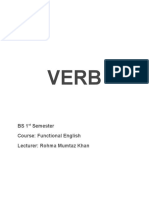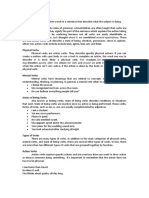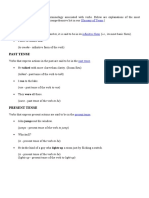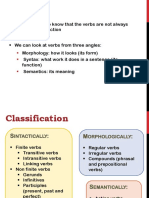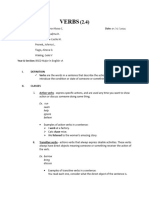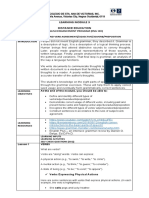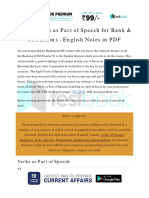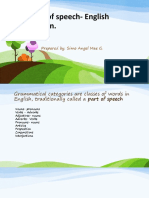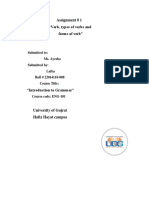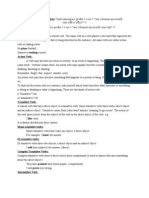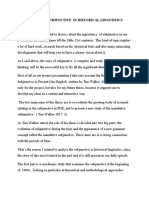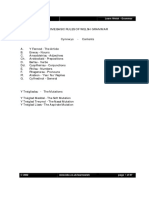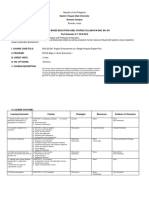0% found this document useful (0 votes)
7 views25 pagesVerbs
The document provides an overview of verbs, categorizing them into types such as action, stative, transitive, intransitive, auxiliary, modal, and phrasal verbs. It explains the importance of verbs in sentences, their functions, and how they can express actions, states, and relationships. Additionally, it covers verb tenses, conjugation, and the use of participles as adjectives.
Uploaded by
najwaannisanaiCopyright
© © All Rights Reserved
We take content rights seriously. If you suspect this is your content, claim it here.
Available Formats
Download as PPTX, PDF, TXT or read online on Scribd
0% found this document useful (0 votes)
7 views25 pagesVerbs
The document provides an overview of verbs, categorizing them into types such as action, stative, transitive, intransitive, auxiliary, modal, and phrasal verbs. It explains the importance of verbs in sentences, their functions, and how they can express actions, states, and relationships. Additionally, it covers verb tenses, conjugation, and the use of participles as adjectives.
Uploaded by
najwaannisanaiCopyright
© © All Rights Reserved
We take content rights seriously. If you suspect this is your content, claim it here.
Available Formats
Download as PPTX, PDF, TXT or read online on Scribd
/ 25








